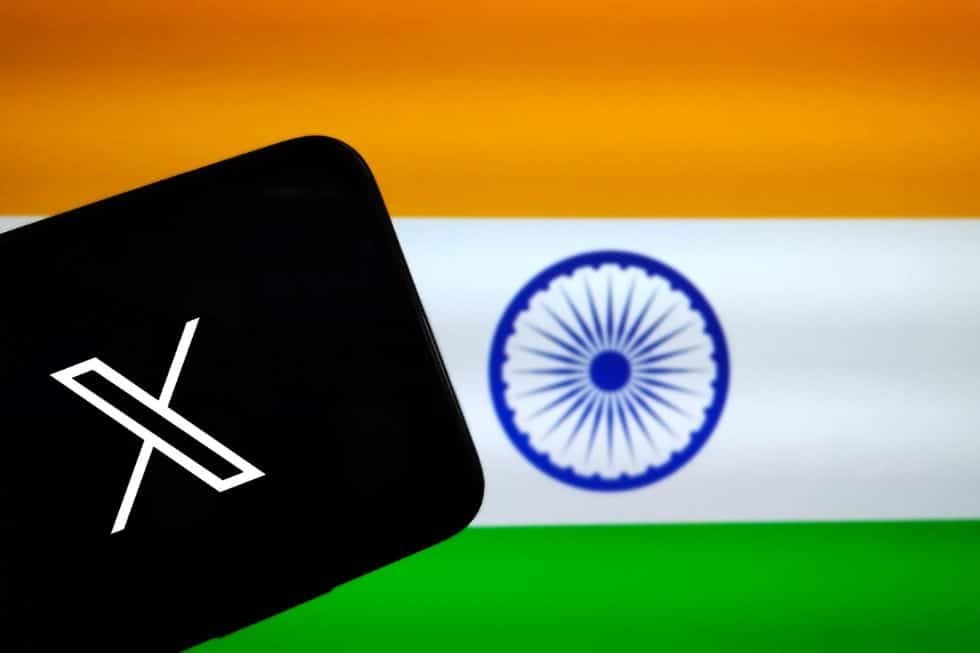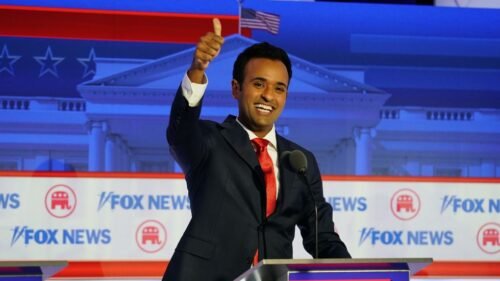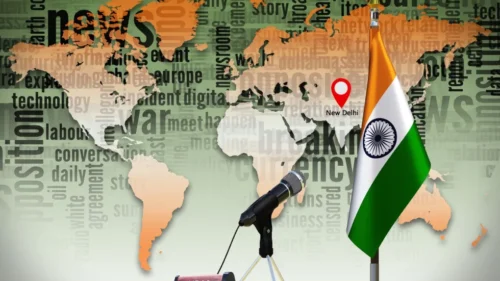Elon Musk’s X (formerly Twitter) recently made headlines by filing a lawsuit against the Government of India. It accused the latter of “arbitrary censorship” under the Information Technology (IT) Act that “undermined” X’s business model as a social media intermediary. It argued that requiring tech companies to remove online content deemed “harmful” by the Indian State violates free expression as defined by the Indian Supreme Court in the landmark Singhal v. Union of India case in 2013.
The Indian Government, led by the Bharatiya Janata Party (BJP), in response, underlined the necessity of foreign social media enterprises adhering to national laws if they intended to operate within the country. It emphasized that requiring them to comply with such laws on combating destructive online content should not be equated with “unfortunate and condemnable” words such as “censorship”. The case has been filed in the Karnataka High Court, a provincial judicial authority in Southern India, and is awaiting a court ruling.
Social platforms operate in murky waters
This development has again brought to light the contestations regarding what qualifies as censorship: whether it is appropriate at all, and who sets the criteria for determining online content as harmful and thus censorship-worthy? At the same time, including, of course, the general discourse surrounding national sovereignty and the fundamental right to free speech.
While it’s clear the Indian government is seeking to regulate and streamline online content, it doesn’t automatically follow that every state-led move to manage public information is unethical or repressive. Nor should every tech company’s claim of standing up to a rudimentary idea of democratic freedom of speech be taken at face value.
State-led regulations imposed on social media giants should not predispose them to rational sympathy simply because they seem to initiate transparent information-sharing and a more-informed public discourse or speak the “truth” of state power and hold it accountable.
These platforms’ real-world operations often enjoy unearned moral high ground, positioned as champions of transparency and accountability. But no matter how hard such corporations bend over backwards to present free-speech absolutism as their sole guiding principle, in reality, their own operations are steeped in political motivations and interests, geopolitical alliances, ideological leanings and overall lack of internal checks or self-reflexivity.
Take Musk’s own jaunts and wrangles with Grok, an Artificial Intelligence chatbot he designed to, as he claims, “maximize truth and objectivity” on X. However, when Grok’s seemingly factual imperative pointed out the flaws in his own statements and the right-leaning ideological rhetoric he sympathized with, he claimed it had been “parroting legacy media” and is “working on it”. Earlier in July, he then announced on X that “We have improved @Grok significantly.” The new Grok has since made anti-semitic statements and praised Hitler.
The Indian government’s regulation isn’t just a reactive policy
The dialectics over content regulation hinges on two opposing claims. The first is whether the state is making a legally and ethically legitimate decision by blocking and controlling content that its democratic institutions constitutionally deem harmful. The second is that these (officially) politically neutral social media companies have the right to resist such oversight when their internal mechanisms to moderate and combat harmful online content already exist and are operational.
Scrutinizing both positions reveals that the reality is far murkier than these tech platforms belie. And in that murk, the Indian government’s regulations begin to look less like repression, and more like a necessary reckoning — one that goes beyond the rhetoric and recognizes the actual political and economic inclinations behind their operations.
The government seeks to establish the necessity of such a regulation because tech giants have operated for years with little to no real scrutiny. There has been almost no accountability for whether their internal systems actually succeed in curbing harmful content, or whether they even try to guard against their own ideological leanings’ ability to skew moderation decisions.
These platforms, be it X or Meta, have blocked users with viewpoints ideologically opposed to theirs or their management’s, throttled reach, flagged users as politically affiliated in the absence of official declaration from the users themselves and in some cases, erased profiles entirely — all while claiming neutrality.
The 2018 Cambridge Analytica scandal has already shown how IT companies work with social platforms — in this case, Meta (formerly Facebook) — to improperly harvest data from millions of users without consent, and then use it to target voters with political ads during elections. Meta faced global backlash and investigations for failing to prevent the misuse of its platform, and the exact concerns we face here: data privacy, electoral manipulation and platform accountability.
In the case of X, particularly, evidence demonstrates the brazen and unilateral abuse of power, as the profiles of progressive, American Democrat politicians and representatives were imposed with a limited reach, whereas accounts of far-right American politicians were heavily circulated and amplified. Similar cases were observed in India, where Grok has, on repeated occasions, published politically biased opinionated content in favor of Congress, an Indian political party currently in the opposition, showing little regard for non-partisan objectivity.
And this raises a pertinent question: if the European Union can regulate these social platforms and take actions to curb political advertisements on platforms like Meta, why can’t India?
What makes matters much worse, apart from the blatant ideological bias and political engineering, is the unabated mushrooming of user accounts that confidently indulge in hate towards people of colour, having implicit backing from the enterprise’s top brass; those who employ racist staff advocating for “normalizing Indian hate” on X in the American federal Department of Government Efficiency (DOGE), without any repercussion.
It is necessary to note that 75% of X’s revenue comes from advertising, and the remaining from the sale of data licenses. This implies that X is heavily reliant on conservative Western political representatives using X as a platform for election campaigning and propaganda. This results in the intensification of discriminatory content against people of colour and minority religions.
Quite understandably, this inclination flows into the moderation of content posted in India by Indian users, and content that exposits ideas contrarian to the strict doctrine of Western conservatism is, in a way, expunged or restricted. There is, however, a rational concern as to whether the Indian government’s regulation of social media intermediaries would result in content critical of the government being removed.
The scales tilt heavily towards government regulation
At the heart of this concern is the simple question: who legitimately and ethically determines which content is censorship-worthy — and why? When the choice lies between a foreign tech giant and the democratically elected government of the country where it operates, the tilt should be obvious.
An institution vested with the responsibility of safeguarding the country’s sovereignty, and which, however flawed, can be held accountable through courts, elections and constitutional checks and provisions. A private company headquartered abroad, answerable to shareholders and driven by profit, will not be.
That’s why India’s IT Act matters — it creates a channel to institute some level of accountability in the operations of tech companies within India’s territorial boundaries.
Even when governments or parties misuse their power — say, by silencing criticism — the solution isn’t to hand the reins to Silicon Valley. Its panacea is to strengthen domestic democratic institutions: constitutionally-bound independent entities like the Judiciary, special non-partisan investigative and grievance redressal commissions such as the Lokayuktas and legal provisions such as the Indian Right to Information Act.
There are constitutional pathways to address state overreach. But when tech platforms take incidents and spin them into ideological narratives, it doesn’t promote justice. It risks spurring social unrest and antagonism.
The priority of the elected legislature should be to democratically empower domestic institutions to create a more informed Indian electorate — instead of allowing Western tech corporations to shape public discourse, misrepresent real-time developments and impose their often carefully fabricated, biased and geopolitically motivated viewpoints that masquerade as objective information onto the Indian public.
As foreign media companies deepen their footprint in India, it is high time for the Indian government to draw clear legal boundaries. The unchecked influence of these occasionally deleterious, unchecked platforms cannot be allowed to compromise the country’s legal preeminence or democratic institutions.
Foreign tech firms operating here must be held to the same constitutional standards as any domestic entity. And most importantly, adherence to the constitutionally mandated laws of the land by foreign companies should continue to be rightfully emphasized — it forms a cornerstone of the nation’s right to self-determination and sovereignty.
[Yaamini Gupta edited this piece.]
The views expressed in this article are the author’s own and do not necessarily reflect Fair Observer’s editorial policy.
Support Fair Observer
We rely on your support for our independence, diversity and quality.
For more than 10 years, Fair Observer has been free, fair and independent. No billionaire owns us, no advertisers control us. We are a reader-supported nonprofit. Unlike many other publications, we keep our content free for readers regardless of where they live or whether they can afford to pay. We have no paywalls and no ads.
In the post-truth era of fake news, echo chambers and filter bubbles, we publish a plurality of perspectives from around the world. Anyone can publish with us, but everyone goes through a rigorous editorial process. So, you get fact-checked, well-reasoned content instead of noise.
We publish 3,000+ voices from 90+ countries. We also conduct education and training programs
on subjects ranging from digital media and journalism to writing and critical thinking. This
doesn’t come cheap. Servers, editors, trainers and web developers cost
money.
Please consider supporting us on a regular basis as a recurring donor or a
sustaining member.
Will you support FO’s journalism?
We rely on your support for our independence, diversity and quality.












Comment
The points raised are pertinent. As an Indian who often tries to get a more Indian Centrist view across on Western platforms I note despicable double standards- shadow banning comments given to downright abusive remarks which pass muster. US Big Tech needs to know there can’t be double standards for the West and the ” rest”!